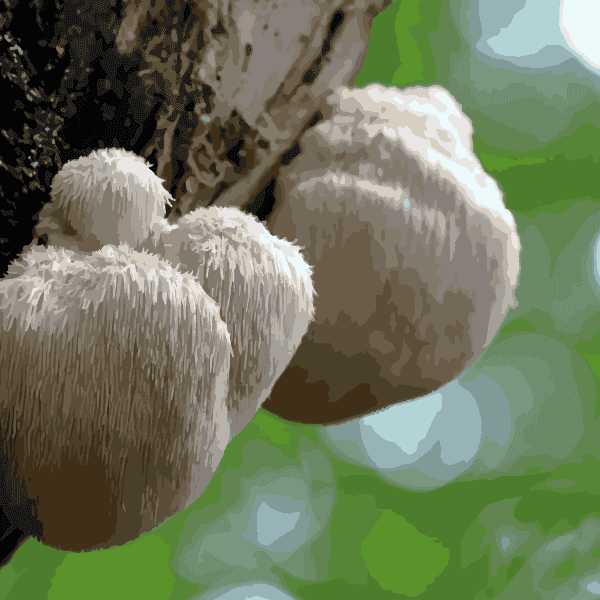
Lion's Mane (Pom Pom) {Organic}
Lion's Mane mushroom is recognized for its potential medicinal benefits, particularly in that it may support brain health. It contains compounds that may support the neurological system and may support cognitive function. Additionally, its anti-inflammatory and antioxidant properties have been studied for their potential to reduce oxidative stress and support overall immune function.
Lion’s mane, also referred to as mountain-priest mushroom, bearded tooth, pom pom mushrooms, or its scientific name Hericium erinaceus, is a common mushroom found in North America and Canada. Similarly to shiitake and reishi mushrooms, lion’s mane is saprotrophic, meaning it feeds off dead organic matter, such as a dead or dying tree, old stumps, or logs, which is where it grows.
You might need lion’s mane if . . .
- You experience brain fog or memory issues
- You often feel stressed
- You want to improve your nerve health
Benefits of Lion’s Mane
- Rich in Nutrients
- Antioxidant
- Anti-Inflammatory
- May Support Brain Health
Common Ways to Use Lion's Mane
You can find lion’s mane as whole mushrooms and in pills, powders, extracts, or tinctures.
🌿Try making herbal extractions like this alcohol tincture. ← 🟩 DIYs, recipes, and more!
Growing and Foraging Information
Lion’s mane can be grown on logs or even sawdust-based substrates in a humid, shaded environment, typically requiring temperatures between 60-75 degrees Fahrenheit. If you’d want to try foraging for it, it is typically found in late summer to fall on decaying hardwood trees, likely oak, beech or maple. It is a very unique looking mushroom that looks almost like white icicles.
Safety Concerns
Drug Interaction: If you have any health concerns or are taking any prescription medication, please consult with your healthcare provider before adding new herbs to your diet.
Breastfeeding and Pregnancy: There are no known contraindications when consumed in reasonable amounts.
Select Studies About Lion’s Mane
Health Benefits of Lion’s Mane Mushrooms
“People are looking for alternatives for things before they go on medications,” says registered dietitian Beth Czerwony, RD, LD. “It’s in this holistic attitude that we find food is medicine.”
Neurohealth Properties of Hericium erinaceus Mycelia Enriched with Erinacines
The evidence so far has shown that H. erinaceus mycelium enriched with its active compounds is capable of delaying neuronal cell death in rats with neurodegenerative diseases, such as ischemic stroke, Parkinson's disease, Alzheimer's disease, and depression. Moreover, results have indicated that administration of H. erinaceus mycelia enriched with its active compounds can promote functional recovery and enhance nerve regeneration in rats with neuropathic pain or presbycusis. Despite that more clinical research is needed to fully understand the potential applications of erinacine-enriched Hericium erinaceus mycelium, the majority of preclinical data strongly suggests that it is safe and offers much-needed neuroprotective applications.